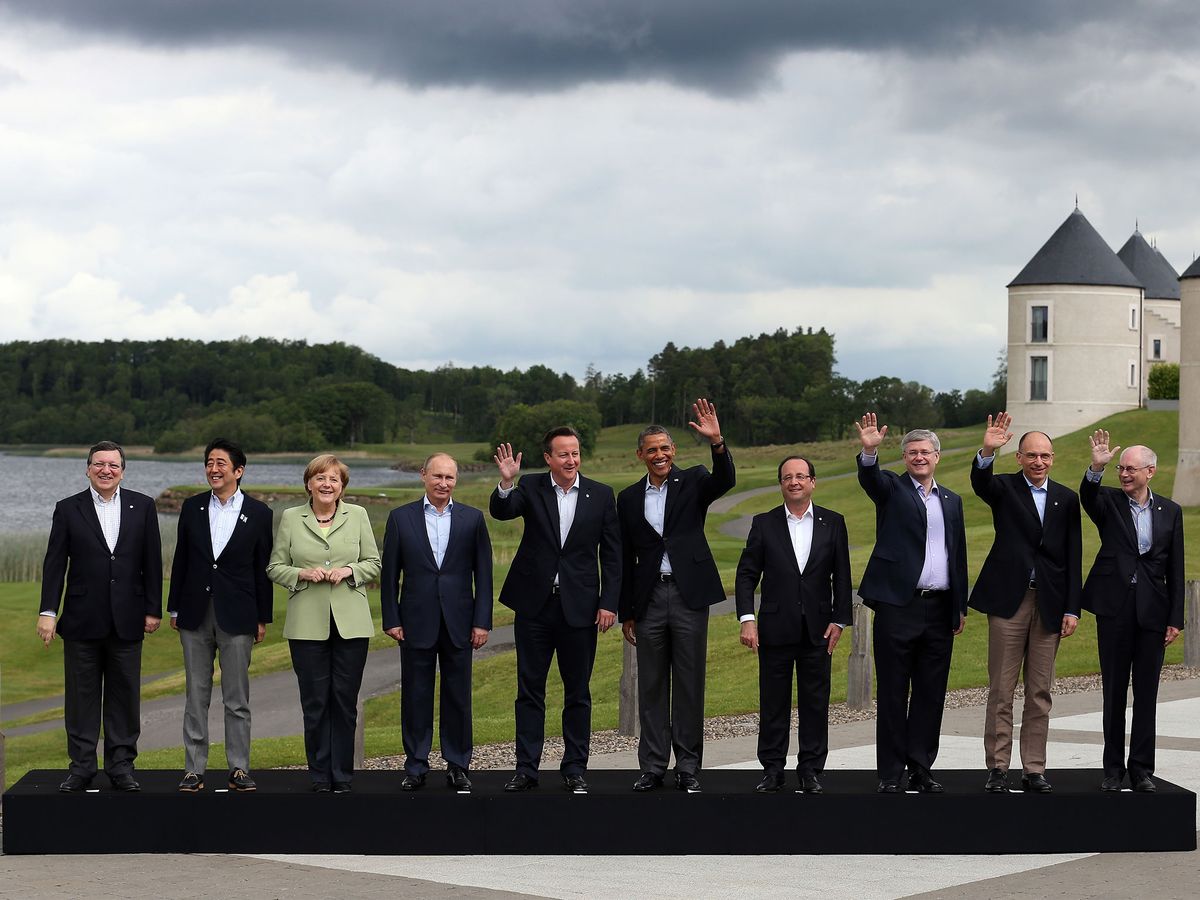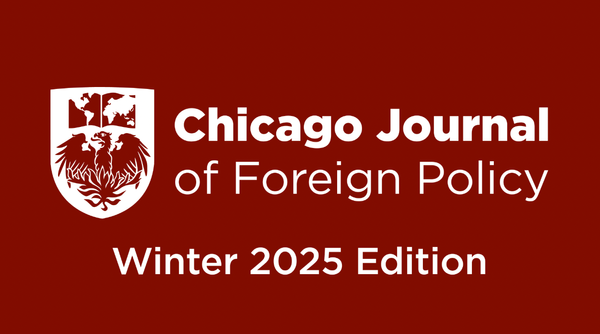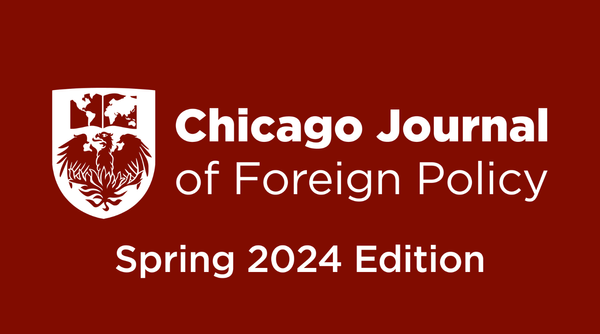The Ongoing Importance of the West

G.P. CREAN IV – A Review of Kishore Mahbubani’s “The Case against the West: American and Europe in the Asian Century” from Foreign Affairs 87, no. 3 (2008).
When the Soviet Union collapsed in 1990 and the Cold War ended, the new international political order that emerged was unclear. The sole superpower remaining after decades of a bipolar international structure, the U.S. became a de facto hegemon of sorts. The Pax Americana of the 1990s saw a period of global prosperity, economic growth, and relative peace punctuated by small military actions orchestrated by large coalitions representing a multinational interest in peace and upholding international law.
However, with the end of the Cold War came a revolution in the sorts of threats the world faced. The terrorist attacks of 11 September 2001 impelled the West to pursue a global war on terror, which has evolved into a wide Middle Eastern crisis threatening international peace and security. North Korea and Iran are most likely in pursuit of weapons of mass destruction and their delivery systems. The environment looks to be in danger of significant damage. These are some of the key threats facing the international society of states of the twenty-first century. As in the past, the U.S. and Europe are leading the responses to these security issues.
Kishore Mahbubani’s central argument in his 2008 Foreign Affairs article “The Case against the West: America and Europe in the Asian Century” is that the West has managed to bungle the job. The former Singaporean diplomat not only says that the U.S. and Europe have failed to resolve the matters at hand but also proposes that they are the main source of the world’s problems. Given that the West is no longer the great world leader it once was, it ought to step aside for the oncoming “Asian Century.”
The Vilification of the West
Mahbubani sees an impending decline of the West relative to the East. The U.S. and Western Europe have skillfully used the existing international framework (the G-8, the IMF, and the U.N. Security Council to name a few) to resist this shift in the Balance of Power. Mahbubani portrays this refusal to change as evident of the West’s blindness: it does not acknowledge that the nature of the world has changed. The West is seeking to apply old remedies to new problems. Given the West’s apparent ineffectiveness, the international community would benefit from a greater role for Asia.
The three pillars of Mahbubani’s theory of the West’s inept and counterproductive world leadership are the Middle Eastern crisis, the issue of nuclear disarmament, and economic growth and environmental protection. In each of these examples, the U.S. and Europe have demonstrated a lack of effective leadership that has at best yielded token little progress and at worst has caused situations to deteriorate further.
Take the crisis in the Middle East. Mahbubani proposes that flare-ups of conflict in the region originate with U.S. intervention. When the U.S. military invaded Iraq in 2003, concern was aroused across the Muslim world. In particular, “The Case against the West” espouses the notion that the great failure of the Iraq War, in a wider diplomatic sense, was its supposed lack of legitimacy. The U.S. and U.K. invasion of Iraq was in direct defiance of a U.N. Security Council resolution denying the pair’s request for a U.N.-backed military action. Given that it lacked the U.N.’s blessing, Mahbubani questions the moral legitimacy of the operation and goes so far as to say it was “clear” that the war was “illegal” (Mahbubani, 114). The problem is that when the U.S. and the U.K., two self-declared guarantors of international law, violate international law, the authority of the international system is undermined.
Mahbubani sees this Western disregard for international law to hamper progress with regard to nuclear non-proliferation. To quote his article, “Today, the NPT is legally alive but spiritually dead” (Mahbubani, 115). Aside from the systemic imbalance of dividing the world into nuclear and nonnuclear states, the West has further unsteadied the precarious balance by spiting the spirit of the law. While for the most part, the spread of nuclear weapons has been limited (Israel, North Korea, India, and Pakistan are notable exceptions), Europe and the U.S. in particular are not pursuing policies of disarmament as the treaty intended. Mahbubani represents the U.S. position toward the treaty as one of resentment that international law restricts U.S. sovereignty. Furthermore, the West’s tacit approval of the Israeli nuclear program delegitimizes its condemnation of Iran’s presumed pursuit of nuclear weapons. By not holding itself and its allies to the standards set by NPT, the U.S. has lost the “moral authority” (Mahbubani, 117) to expect other states to adhere to international law.
Though he concedes that much of the economic growth of the latter half of the twentieth century can be attributed to Western-orchestrated trade liberalization, Mahbubani argues that in more recent years the West has abdicated its position of leadership in the global economy. As they become less competitive relative to the East, the U.S. and European states have ceased to promote free trade, worrying that competition could actually be damaging.
Meanwhile, the West has also declined to lead the international community in environmental preservation and protection. Moreover, the U.S. has actually resisted environmentalist policies at the international level. Mahbubani puts forth the notion that greenhouse gases that have already built up in the atmosphere are a more significant problem than gases being released now or in the future. As such, the West bears the lion’s share of responsibility. The article seconds this conclusion by citing the “natural principle of justice” (Mahbubani, 120) that wealthier, more developed states ought to exert most of the effort needed to decrease the quantity of environmentally dangerous emissions in a meaningful way.
Given the West’s weakness at global leadership, Mahbubani urges a shift in focus in international decision making. Asia should take on a greater role as its increased economic importance would deem appropriate. The West would still play a valuable role, but given its waning power, it ought to work with the rest of the world as a true partner in a multipolar order to combat global threats. It will have to observe international law and cede its heretofore unduly privileged position in the global order. To further this end, the U.N. General Assembly should be strengthened relative to the U.N. Security Council because the former, being the most democratic of international institutions, possesses legitimacy unmatched by other organizations. These actions would create an international community that is fairer, more just, more democratic, and more effective at addressing the new threats facing the world.
Apt Recognition of Global Shifts
In a changing world, “The Case against the World” correctly identifies new global threats and raises a good point in arguing that the world would be better served by a more multilateral approach. Can the West continue to lead the world alone? Are old solutions effective at resolving new problems?
Terrorism, cyber warfare, environmental decay, failed states—these are the problems facing the international society of the twenty-first century. In these cases, the enemy is elusive. The problems are perpetual, with no real quick-fix option. Additionally, they affect all states.
With the end of the Cold War came an end to the days of great powers (or superpowers as it might be) fighting to carve up the world into spheres of influence; then, all other states had little choice but to choose a camp. To combat the security threats of today, great powers must partner with weaker states. It might very well be that international institutions, especially the ones that encompass the most nations (Mahbubani displays an admiration of the U.N. General Assembly), are best equipped to find solutions that have so far eluded the West working on its own.
With regard to the crisis in the Middle East, the West has been pursuing a policy of nation-building in both Iraq and Afghanistan. Both countries clearly fall into the category of failed states. The peoples lived under suppressive dictatorial regimes that did not participate as good citizens of the international society. In the case of Afghanistan, the Taliban harbored terrorists. This posed a threat to global security, and while coalitions of the willing removed the ruling regime, the process of nation-building is too great for any one state—or even one bloc of states—to do alone. The entire international society needs to come together to set Iraq and Afghanistan on the path to good governance.
The same multilateral approach needs to be taken to promote nuclear non-proliferation. Mahbubani is right in saying that NPT can only truly be effective if all of the states of the international society cooperate to ensure compliance. The nuclear states ought to keep to the spirit of the agreement by working to reduce their nuclear stockpiles. Meanwhile, international condemnation should fall upon any noncompliant state without exception. Given that NPT is a truly global agreement, counting 189 signatories, it is impractical for the West alone to enforce it. However, if all states party to the agreement stand behind it, any state that fails to comply will face consequences instituted by the whole international community.
Arguably, the challenge of environmental protection is the best example of the need for multilateral action. All states share the Earth. Pollution emitted by any one country affects people all across the planet. While states can (and do) blame one another for insufficient national environmental policies, only an international policy for environmental protection will do. Only if the countries of Earth ban together to prevent further damage to the planet can a meaningful solution be produced.
Ultimately, this is perhaps the greatest conclusion to be drawn from “The Case against the West.” The problems facing the twenty-first century world are not national problems but rather international ones. The security threats of today are global. What the political failures of the West during the twenty-naughts show is that a multilateral approach encompassing coordinated efforts from all nations is the most effective weapon against contemporary issues.
Shortcomings of a Liberal Crusade
Mahbubani successfully advocates for a less Western-focused, more multilateral approach to solving global issues. However, his argument that the West is a great source of the world’s problems is weak. It rests upon inconsistent logic and an over-emphasis on liberal international theory.
The logic of Mahbubani’s argument is ruined by contradictory statements about whether the West is abdicating world leadership or whether it is clinging to power in spite of its impending decline relative to the East’s rising star. In reality, a modicum of contradiction is probably accurate. However, Mahbubani’s assertions appear absolute.
“The Case against the West” begins with talk of the West’s decline and its desperate refusal to acknowledge its diminished position in a changing world:
In fact, the West has become the most powerful force preventing the emergence of a new wave of history, clinging to its privileged positions in key global forums, such as the UN Security Council, the International Monetary Fund, the World Bank, and the G-8…, and refusing to contemplate how the West will have to adjust to the Asian century (Mahbubani, 111).
Mahbubani’s thesis is based on the premise that the West is worsening the state of world affairs by persisting to lead the old way in a new world order. Meanwhile, the author writes that “Western governments are relinquishing their stewardship of the global economy” (Mahbubani, 119). How can the West actively make matters worse by abdicating its leadership role? Furthermore, if the West is indeed leaving room for others to take charge on matters such as environmental affairs, why has Asia not stepped in? Mahbubani writes about Asia’s ascendency and its desire to take on a greater role in the international society being hampered by Western intransigence. So, when the West elects to not exercise its traditional leadership powers, Asia is perfectly positioned to demonstrate its new status.
This is Mahbubani’s second logical inconsistency. He both insists that Asia would take on a position of great prominence as a power center in a shifting world order if only the West would allow it and that the East is still not ready to do more than follow the West. “The Case against the West” contains talk of an “Asian Century” and pleas that the West “welcome the fact that the Asian states are becoming competent at handling regional and global challenges” (Mahbubani, 113), suggesting the West holds undue power. Yet, Mahbubani also criticizes the West for not taking the lead in all crises: “The West has become part of the problem, and the Asian countries are not yet ready to step in” (Mahbubani, 121).
These two contradictions are linked. In areas where the West exercises leadership power, Mahbubani criticizes it for not allowing Asia to take on a larger role. Where the U.S. and Europe allow other states to take the lead, the author defends Asia’s reluctance to step in as it not being ready. One can only conclude that the author’s personal bias is showing through. Mahbubani, the foreign Singaporean diplomat, looks to portray his home region in as positive a light as possible. It furthers this aim to paint the West poorly.
Beneath Mahbubani’s attacks against the morality and legitimacy of Western foreign policy is a misunderstanding of legitimacy—perhaps the result of an overly liberal approach to international relations—that leads him to overstate the effects of Euro-American actions. The way the article deals with the subjects of the Middle Eastern crisis and nuclear proliferation substantiates this reading.
Mahbubani explains that because the U.S. lacked U.N. Security Council approval for its invasion of Iraq, the war was illegal and illegitimate. The subsequent problem is that the U.S. lost the right to its claim to be an upstanding citizen of the international society of states and lost its “moral authority” (Mahbubani, 117) to ever demand that another state comply with international law.
It must be understood that noncompliance with international law does not delegitimize it. The fundamental concept of international law is that it is above any one state. The U.S. might elect to ignore a treaty or a resolution, but the expectation that all parties respect the agreement endures. After all, the U.N. Security Council did not cease to exist because the U.S. chose to fight a war without its seal of approval. The consequence of violating international law has always been condemnation by the international community. The U.S.-led coalition of the willing experienced significant opposition from other states. Any other state that violates international law will also face universal condemnation. The system was not undone by U.S. actions. The U.N.’s legitimacy is too great to be so easily undermined.
With regard to the issue of “moral authority,” the U.S. can still expect and demand that others comply with international law. To say it cannot is rather like saying that a criminal cannot demand that his fellow man follow the law. Realistically, laws are laws even if they have been broken. Even if the reminder comes from a criminal, to violate law is unjust, and every citizens has the right to demand justice of his fellow citizens. This same logic refutes Mahbubani’s claim that the West has undermined NPT by not disarming and by failing to condemn Israel’s nuclear program. No doubt, the West’s actions are not exemplary of perfect citizenship in the international society of states, but Mahbubani overstates the damage done by Western transgressions. A nation such as Iran has no increased right to possess nuclear weapons because Israel does. The treaty is not invalidated because one party (or, in this case, non-party as Israel is not actually a signatory to NPT) fails to comply.
A New Global Order
Without a doubt the world of the twenty-first century is a new international order with a new set of problems. Whereas through much of the twentieth century the West was able to combat global threats alone, this is no longer practical. Multilateral approaches, global in nature, must be employed to fight terrorism, climate change, nuclear proliferation, and the myriad other new dilemmas.
The rise of Asia presents the foundation for a new international system in which the West partners with less established states through international institutions such as the U.N. General Assembly to combat what are shared threats. This is not to imply that the West must take on a diminished role. It is simply the new reality that no lone nation can solve global problems. Only international cooperation will enable states to maintain global peace and promote world prosperity. The twenty-first century will not be remembered as the Asian century; no, it will be remembered as the international century.





